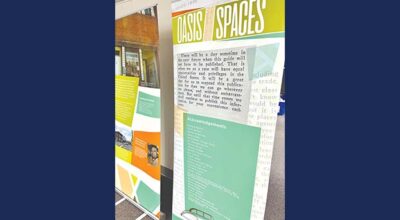Mine case awaits judgment
Published 12:04 pm Thursday, January 29, 2015
The Pamlico-Tar River Foundation and the North Carolina Coastal Federation will wait another three weeks for judgment in the case that pits environmentalists and conservationists against an international corporation and a state regulatory agency.
Tuesday, Office of Administrative Hearings Judge Phil Berger Jr. heard arguments from attorneys from the Southern Environmental Law Center and the Raleigh law firm of Brooks Pierce, representing Martin Marietta Materials, Inc., and the North Carolina Department of Environment and Natural Resources — the issue: the discharge of up to 12 million gallons of water into the headwaters of Blounts Creek and whether DENR was following state regulations when it issued a National Pollutant Discharge Elimination System (NPDES) permit that would allow it to happen. Martin Marietta leased Weyerhaeuser land in southern Beaufort County to construct at 649-acre limestone mine. The discharged water will be used in the mining process.
SELC’s argument Tuesday was that the excessive amount of fresh water discharged on a daily basis could change the pH of the water, endangering an ecosystem previously declared by the state to be a nursery for many saltwater species. The argument made by DENR and Martin Marietta counsel in Tuesday’s hearing was that the watershed as a whole needs to be looked at — at the mouth of Blounts Creek, the change caused by the fresh water will have little effect, according to Harrison Marks, executive director of the Pamlico-Tar River Foundation. Marks said there is not a lot of difference between the facts supplied to the court by either side, but the facts are not the issue.
“The argument is around ‘What do these facts mean in relation to the law and the regulations that interpret the law?,’” Marks said.
Marks attended the hearing along with many supporters and residents from Blounts Creek. The hearing lasted over four hours, but no judgment was made. Each side was given another week to submit additional briefs on case law, after which Berger will take two weeks to either decide in favor of one party, or will send the case through the court system, Marks said.
“This is the beginning of eh process in the legal system,” Marks said.





